|
Oh you ungrateful readers who have surely come across this piece of paper by chance – this piece of sincerity and, at the same time, the weekend headache of the editors. You surely don’t know that editorials as such were invented in ancient Egypt. The Egyptians used the concept for the texts in which the hieroglyph-producing artisans, faced with the task of completing long and difficult inscriptions full of boasts and superficiality, made fun of their clients. Initially, these vicious statements were left on the inner side of the tombstones or sarcophagi and remained hidden for thousands of years. Yet since the invention of papyrus, and finally paper, and since pages can be turned, such editorials can be accessed by uninvited readers. An example is given by one of the oldest scrolls at the Library of Alexandria – namely Thovt’s treatise About the history of the third underworld and related heights – in which the writer added: „Thovt dictated this while he was drunk. I was there“. For including this comment the writer was crushed alive between two slowly turning millstones. If these were powered by the Nile, it must have been a really slow death.
Today we are under no threat of slow death, at best the threat of a quick collapse of the organism due to a lack of exercise, and therefore we are more and more courageous in writing the editorial. We would like all readers of our compilation of texts to read it, even if the editorial is no longer a hidden provocation producing a single hero – a hero, moreover, who knows that he will never see the fruits of his courage. And as I have now wasted a lot of time and energy in highlighting one of the subgenres of the magazine – which surely caught your attention only thanks to a few ugly pictures – now I’m telling you: buy more copies of this great magazine to find out what its creators really think; there is not much we can do about the authors of some of the articles as they will go over the same ground again and again. Here, as in any good magazine, you will learn how things really are: who actually wrote in a state of drunkenness and who just made it up.

Рекомендуемые статьи
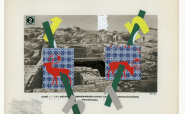
|
|
Nick Land was a British philosopher but is no longer, though he is not dead. The almost neurotic fervor with which he scratched at the scars of reality has seduced more than a few promising academics onto the path of art that offends in its originality. The texts that he has left behind are reliably revolting and boring, and impel us to castrate their categorization as “mere” literature.
|

|
|
An American poet was invited to the White House in order to read his controversial plagiarized poetry. All tricked out and ready to do it his way, he comes to the “scandalous” realization that nothing bothers anyone anymore, and instead of banging your head against the wall it is better to build you own walls or at least little fences.
|
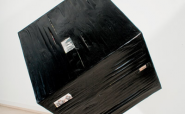
|
|
Borrowing heavily from fairy tales, fables and science fiction, the art of Magda Tóthová revolves around modern utopias and social models and their failures. Her works address personal and social issues, both the private and the political. The stylistic device of personification is central to the social criticism emblematic of her work and to the negotiation of concepts used to construct norms.…
|
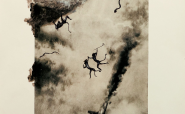
|
|
"In Cameroon, rumours abound of zombie-labourers toiling on invisible plantations in an obscure night-time economy."
|
|
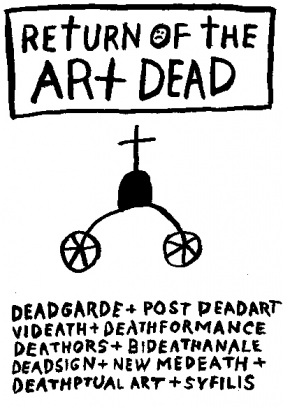
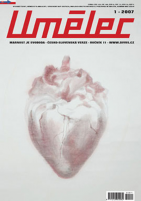





Комментарии
Статья не была прокомментированаДобавить новый комментарий